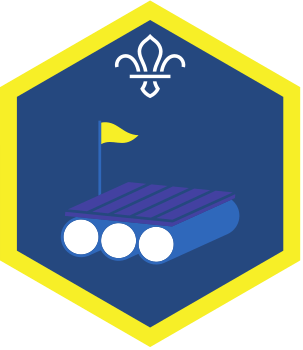Orienteering
What to expect
There are many different kinds of orienteering, but they all have a few things in common; a map, control points and you. Using a map and sometimes a compass, you’ll navigate your way around a small area to find ‘control points’. At each one there may be a number, letter or stamp that you need to write down or collect. Orienteering can be done individually or as a team and takes place in lots of different locations, including forests and fields. Run around, have fun and visit as many control points as you can.
What you’ll learn
Orienteering helps you improve your navigation skills and helps teach you methods of map-only navigation. Often, orienteering takes place in a small enclosed area, so it allows you to orientate your map, find the next control point and head towards it, sometimes just by looking at your position and the landmarks around you. You’ll make independent decisions and decide your own route whilst out on the course, which is great practice for map-reading on an expedition.
Fun facts
The term ‘orienteering’ was first used in 1886 at the Swedish Military Academy Karlberg and meant the crossing of unknown land with the aid of a map and a compass. Since then, it’s become a popular sport, with world championships held every year. There are also world championships of ski orienteering, trail orienteering and mountain bike orienteering held annually.
You can find out more information and guidance about Orienteering on the Ordnance Survey Website or the British Orienteering Website.
Handy hints
- Bring a water bottle. Orienteering can involve lots of running, so make sure you have plenty to drink to keep you hydrated.
- Grab some extra whistles. Having a whistle when orienteering can help you in an emergency, so bring some spares with you just in case anyone forgets.
- Spare waterproofs. The weather isn’t always sunny, so bring some spare waterproofs just in case anyone forgets.
Safety
You must always:
- Complete a risk assessment
- Have the right ratios of number of adults to provide suitable supervision
- Set up an InTouch process
- Know what to do in an emergency
- Share information with parents and carers with an activity information form
- Get approval from your commissioner
Be safe outdoors:
- Check the weather forecast
Hill walking:
- When in terrain 1 or 2 always leave a route plan with someone responsible, and all party members must carry an emergency card.
- The terrain environments are defined in POR 9.12.7, check the definition before planning your activity.
- Keep within the specified party sizes.
Joint activities with other organisations:
- This activity can be run jointly with Girlguiding.
- This activity can be run with other organisations.
This activity can be led by you or someone else in Scouts:
The activity leader must have an adventurous activities permit with the right level and permissions for your group.
You don't need a permit for activities in Terrain Zero.
Where the group is entirely members over the age of 18 the permit scheme does not apply, please follow the rule 9.8 adult groups.
You can go to a centre or use an activity leader who is not part of Scouting:
You must find a suitable provider who meets the following requirements:- The centre/instructor should hold one of these: (If the provider is AALA exempt)
- Mountain Training - Walking Group Leader (WGL)
- Mountain Training - Mountain Leader (ML)
The provider must have public liability insurance.
Guidance
Reflection
Orienteering gives everyone the opportunity to learn and develop navigation skills. Everyone can practice map-only navigation, learn how to orientate themselves and navigate using the features of the terrain. When completing the course, were there any landmarks on the ground which you could easily identify on the map? How did you use these to help you work out where you were?
Problem-solving is central to orienteering, as you have to find your location, find your next waypoint and find the best route to get there. Were there any times when you found yourself in a tricky situation? What did you do to get out of it? Thinking about the problems one at a time can often be the best approach.
- Orienteering can often be adapted so more people can give it a go. Many outdoor centres have facilities that cater for people with additional needs and experienced instructors to help everyone achieve their goals. Get in touch with your local provider to chat through the needs of people in your group. Make sure you give them plenty of notice.
- Check out the guidance from British Orienteering to help make this adventure accessible for everyone.
All Scout activities should be inclusive and accessible.
If anyone enjoyed this activity, have a look at the Navigator Staged Activity Badge or the Scouts Orienteer Activity Badge. Encourage keen orienteers to look out for any local orienteering clubs.


